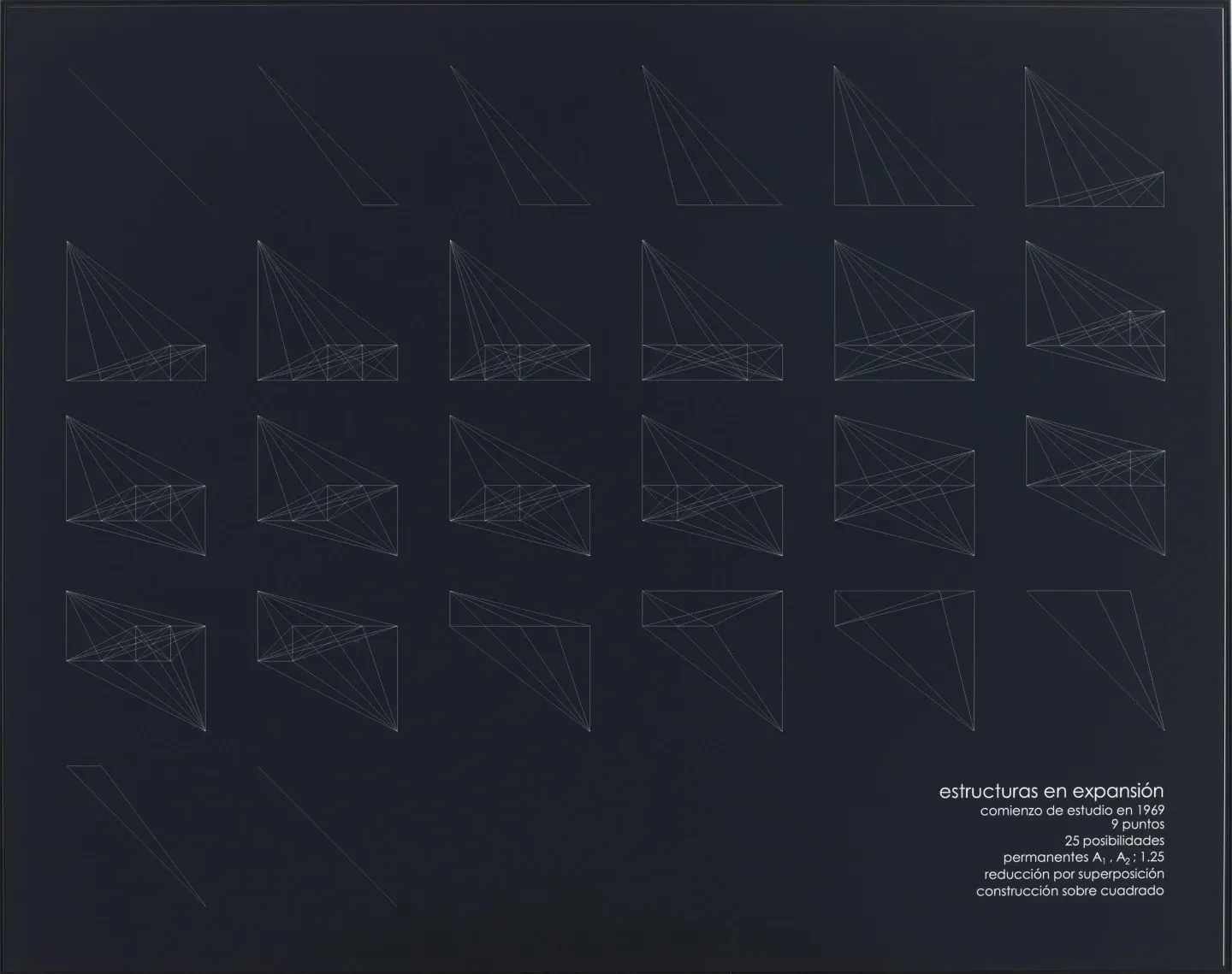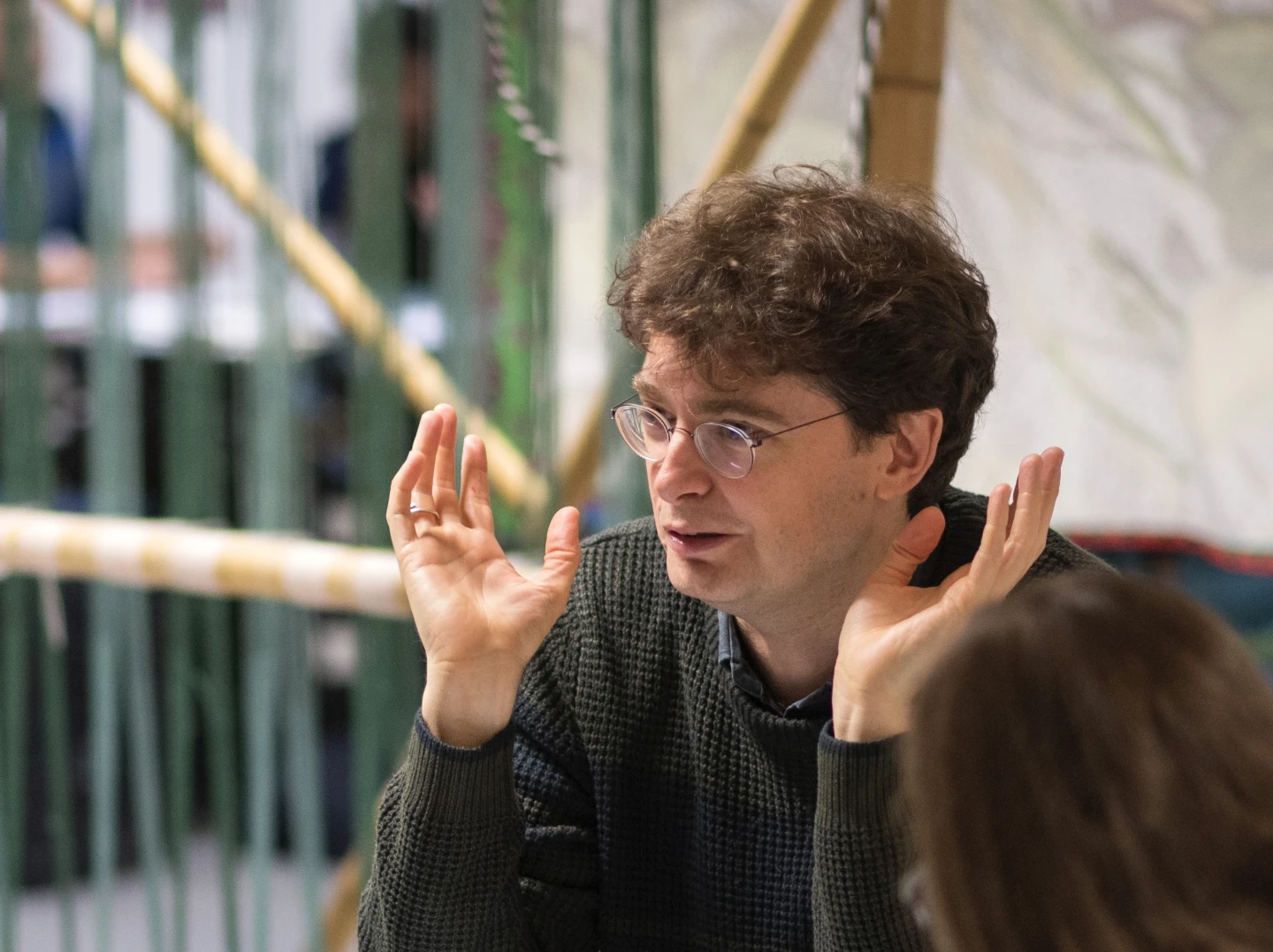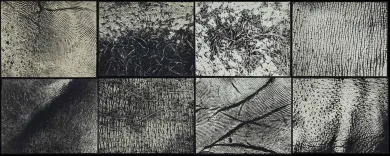Studies Constellation. Sven Lütticken
Annual Fellowship 2025-2026

Elena Asins, Estructuras en expansión (Expanding Structures), 1969/2009
Museo Reina Sofía
The annual fellowship Studies Constellation invites key thinkers in the history of contemporary art and theory to develop and constellate an annual research project around some of the questions that encourage the intellectual engagement of art, culture, and the museum with the present.
The fellowship is conceived as a space for sustained, generative and expansive exchange that adopts different intensities and rhythms, combining in-person activities at the museum, including internal seminars and public presentations, with time for preparation, collection, rest and digestion outside the museum.
This programme is part of the commitment and responsibility of the Museo Reina Sofía's Study Directorship as a space for cultural production and exchange with the different research contexts in which it is involved.
Unacting Personhood, Deforming Legal Abstraction
In his 1975 essay On Practice, artist Mel Ramsden warned that the way in which the (art) market “shapes human relationships” had become a dominant factor, as its logic had been internalised by artists dependent on that market. More generally speaking, exchange value connects people by separating them and pitting them against each other as competitors. The capitalist world-system has colonised life in an unprecedented way, not only through the value-form —that “real abstraction” analysed by Marx—but also through what we might call the rights-form or the legal form.
Unacting Personhood, Deforming Legal Abstraction draws on contemporary practices and theories, and on historical genealogies that inform them, to address how dominant abstract forms—exchange value and legal form—shape our social relations under capitalism, while establishing hierarchies of access to rights. The focus is specifically on the ways in which the law shapes subjectivities and relationships by dividing the world between people and properties, normalising the white male property owner as the exclusive bearer of reason and law, and creating unequal access to supposedly universal rights. Faced with this reality, the project proposes to explore how relationships and subjectivities could be performed—represented, interpreted, embodied—in other ways.
Artist Andrea Fraser uses the term “enactment” to describe how social structures are produced and reproduced in all kinds of activities. One possibility would be to develop practices that enact roles and relations in different ways—or even unact them—with varying degrees of patience, contradiction, and commitment. From this perspective, critiques of legal or monetary abstraction must embrace failure: the failure of interpellation and identification. In this sense, concepts from the culture wars of the 1980s and 1990s can still be useful. One of these is the concept of “unlearning privilege” proposed by Gayatri Spivak, or José Esteban Muñoz's notion of “disidentification”, understood as a survival strategy for minority subjects in the face of a majority sphere that constantly renders invisible or punishes those who do not conform to the normative ideal of citizenship.
In short, this research project focuses on the ways in which artists, activists, and theorists confront legal abstraction and the dominance of legal form. In many cases, pragmatic interventions within existing legal frameworks are necessary to defend fundamental rights, especially in contexts of increasing vulnerability. However, a broader perspective is also needed: a kind of slow abolitionism, based on unlearning and deactivating the privileges associated with personhood—a legal status that has been granted to a few and denied to many. As Canadian environmentalist David Suzuki warns, “the units of survival will be local communities.” Against this background, it is necessary to imagine and practice other ways of living together, relating to one another and creating.
The research is shared through a seminar entitled The (legal) person and the legal form. Theoretical, artistic and activist commitments—open by call and organised in three chapters—, as well as through conferences and public talks throughout the residency.
Sven Lütticken
2025-2026 Fellow

Sven Lütticken, 2021
Sven Lütticken is an art historian and theorist. At times, his practice can be considered cultural history or criticism. In his view, these are differences of degree, not of substance; he argues that research in art history should be taken to the point where it becomes theoretical and (self-)critical.
Born in Germany, Lütticken has lived and worked in the Netherlands for most of his life. He began writing for art magazines in the mid-1990s and completed his PhD at the Vrije Universiteit in Amsterdam in 2002. Since then, he has been a lecturer at the same university, where he coordinates the Critical Studies in Art and Culture research master's programme. He has also taught theory at the Dutch Art Institute and, since 2022, has been a senior lecturer at the Academy of Creative and Performing Arts at Leiden University, where he supervises practice-based doctoral projects within the PhDArts programme.
For many years, he has been engaged in the critical analysis of the work of various artists and institutions: he has curated projects such as Life, Once More: Forms of Reenactment in Contemporary Art (Witte de With/Melly, Rotterdam, 2005), Deserting from the Culture Wars (BAK, Utrecht, 2019) and a solo project by Sean Snyder (Rongwrong, Amsterdam, 2020). His participation in The Autonomy Project, an initiative of the Van Abbemuseum in collaboration with several art schools and university departments, has resulted in the publication of the volume Art and Autonomy (Afterall, 2022).
Historical, critical, and theoretical research on autonomy has been one of his main lines of work for the past fifteen years. A second line of work is the long-term project Forms of Abstraction, which analyses contemporary artistic practices as interventions in forms of ‘real abstraction,’ such as the form-value, as theorised by Marx. The first volume, Objections: Forms of Abstraction, Vol. 1 (Sternberg Press, 2022), was published in 2022; the second part, Personifications, will focus on legal “real abstraction” and the “form-law” as the necessary counterpart to the form-value.
His most recent publication is States of Divergence (Minor Compositions, 2025).

![Carlos Pazos, Tesoro (Pintura) (Treasure [Painting]), 1973. Museo Reina Sofía](https://recursos.museoreinasofia.es/styles/small_landscape/public/Actividades/AD04814_1.jpg.jpg.webp)
![Francesc Abad, Procés transformació [Proceso transformación, 1972]. Museo Reina Sofía](https://recursos.museoreinasofia.es/styles/small_landscape/public/Actividades/AD05219-009-actividad.jpg.webp)